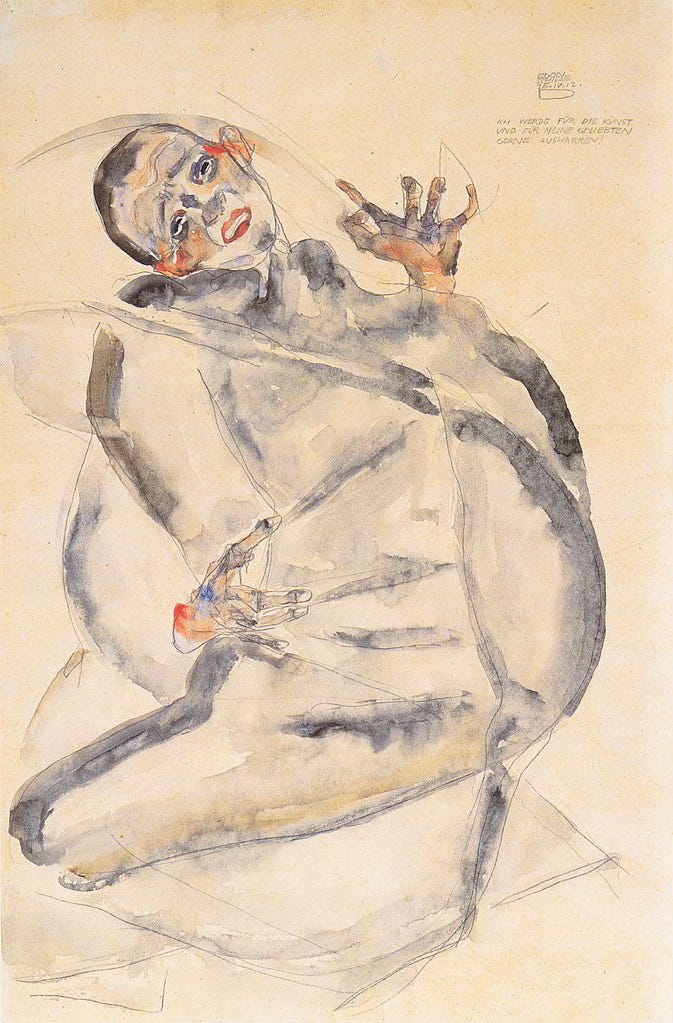Content Note: mentions of self-harm, suicidal ideation, religious trauma, and sensory overwhelm.
The first time I said to myself, I am not in control, it felt like a punch to the gut.
It felt like a loss.
It felt unbearable.
It felt like dirt in my mouth.And then, a few months into taking on this daily mantra, one day it suddenly shifted. It felt like freedom.
It felt like relief.
It felt like peace.
I wrote this note to myself a few months ago.
“I am not in control” has been one of my most important affirmations this year. My partner
is undergoing a bone marrow transplant, and suddenly I’ve had to look death square in the eye. I’ve had to face the possibility of it in a more immediate way than ever before. And although this has been one of the most difficult experiences of my life, the work it’s forced me to do has been essential.I’ve always been a perfectionist. I guess it stems, initially, from issues with self-worth. Even as a child, I thought poorly of myself. My first journals were filled with negative self-talk. I struggled greatly, as an undiagnosed autistic person, to make social connections and make sense of the rules of the world.
My perceptions of everything around me were so unrelatable, and so often dismissed or scoffed at, that I simply stopped sharing them after a certain age. In turn, I eventually stopped sharing them with myself, living in a state of intense discomfort most of the time, and becoming emotionally reactive and self-medicative in an attempt to soothe it.
My parents, as was typical of the times, really only showed their pride in solid school work. And my mom, being a fellow undiagnosed autistic person, wasn’t tapped into any of my emotions–or her own. We weren’t a household that acknowledged anything anyone felt or even said “I love you.” And so, no one knew I was leaving the dinner table every night to self-harm and write poetry about suicide alone in my room.
My body learned early on it wasn’t safe. The world was a literal assault to my senses. I couldn’t trust anyone to protect me, let alone my own body. And my home life didn’t help. I found my parents to be unpredictable, sometimes with violent outbursts, and my nervous system turned up to high alert to compensate.
It felt impossible to read others’ intentions, and so I often put myself in dangerous situations, further running the grooves in my brain that I wasn’t safe.
Control became a necessity in the swirling muck of the world.
I’m not sure where all of my guilt and shame come from. They’ve felt like constant companions. Perhaps it stems from my religious upbringing or from not fitting in as a neurodivergent person.
Certainly, the church taught me to be ashamed of my sexuality, and the media taught me to be ashamed of my body and my looks. My tendency to people-please meant I often took the blame for things that weren’t my fault, and I bent myself into painful shapes in attempts to be accepted by others.
Faith was something that confused me when I was a teenager. I grew up in the church, and I longed to fit in with my peers, who were all devout Christians. But I couldn’t understand how you just trusted something that you couldn’t see. I couldn’t understand why anyone would choose to let go of control that deeply. How did they just trust the world–that same world that constantly harmed me?
Admitting I have no control in this life, at first, felt like a deep grief.
What had I been wrestling with all these years, then?
What had I been fighting for with all my might?
Twisting around in that grief was terror. If I loosen my grasp, anything could happen. Cam could die, and then it would be all my fault.
But the thing is: if I am not in control of whether Cam lives or dies, then I’m free.
If I can truly accept I have no control–then what a relief.
I am not in control. I am at peace.
I don’t want you to take this as victim mentality, or as a way of denying our agency or our responsibility for our actions. The pendulum swings heavily.
It’s an equilibrium.
If you’re someone who has leaned deeply into control and perfectionism, shame and guilt, your whole life–then this work is incredibly important.
We must balance the scales with a free fall into the abyss.
If you haven’t ever used this mantra, I recommend starting gently.
I recommend meditating on it a few times a week and saying it aloud.
If, at first, it’s incredibly hard to stomach or leads to big emotions, keep saying it while allowing the emotions to be–without judgement. Let them come through you. Repeat it aloud until you can say it calmly, on the other side of the emotions.
The first time I said to myself, I am not in control, it felt like dirt in my mouth.
Now, it tastes like grace.
I still say it often. Sometimes through tears.
Sometimes with peace.
But I say it.
And I let go.



So much truth in your words. I think I started to let go when I realised that the consequences could not be worse than living a life bound up in fear and hypervigilance.
Thank you for sharing this gift. 🕊️